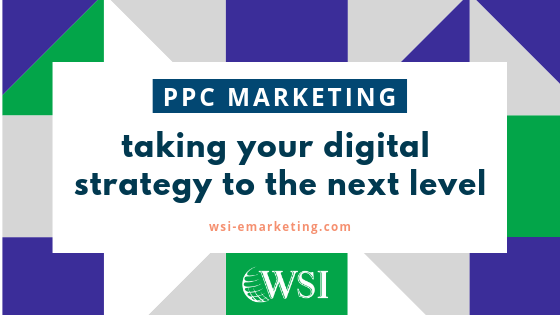
As you may already know, PPC marketing (pay-per-click) is a form of internet advertising where advertisers pay a small fee every time someone clicks one of their ads. In simple terms, it’s a digital marketing method where brands buy web visits rather than earning organic traffic.
If your PPC marketing is setup correctly, what you pay-per-click is miniscule compared to the value of the resulting web visit. In other words, if you pay £2 for a click which results in a £400 sale, you’ve made a hefty profit.
While your PPC marketing campaigns should be proactive and well-organised, remember that the data you collect comes from real interactions with real people. For any marketer, being able to truly understand this is an essential part of the job.
Whether setting up advertising campaigns using Facebook, Google Ads or Bing Ads, investing in PPC can yield impressive returns. All businesses can benefit from PPC if it is properly planned while taking into consideration B2C and B2B consumers.
B2B versus B2C Marketing
There’s no denying that selling to a business is different than selling to consumers and brands need to adapt. B2B generally involves a much longer sales cycle due to all the parties involved in the decision-making process. These executives will rationalise the purchase instead of reacting on emotional triggers more synonymous with B2C.
The difference between B2C and B2B consumers should reflect in the PPC marketing campaign. Considering B2B consumers experience a longer buyer journey and require in-depth information, it is best to give them top-of-funnel resources. This refers to any type of content with valuable data whether it’s a report or guide to help during the research phase.
In terms of B2C consumers, they need a more straightforward approach with clear and obvious messages. These consumers want to know all the benefits of the product which means they make a purchase based on emotion.
To summarise, PPC marketing strategies for B2B require more knowledge about your audience. On the other end of the spectrum, B2C strategies must focus more on the product.
How To Run A Successful PPC Marketing Campaign
PPC includes running campaigns, collecting and analysing data, setting and sticking to a budget and closely monitoring results. While several factors determine the success of your PPC campaign, there are a few key elements you need to master.
Conduct Extensive Keyword Research
Keywords play a vital role in PPC marketing as they target internet users based on what they searched for. Once you have determined the subject of the PPC campaign, the next step is to decide on relevant keywords. Tools such as Google Keyword Planner (GKP) can help identify potential keywords but you often have to narrow it down to fit budget constraints and overall campaign objective.
Just remember that in 2019, more focus will be on the audience instead of just keywords. With that in mind, how do you distinguish your audiences in search?
The answer is in-market audiences for search which was only introduced recently. This new ability enables you to add and monitor audiences within your search campaigns and adjust the bid accordingly. It is particularly useful for observing and optimising low-performing audiences. Brands can now place a bid decrease on audiences with low conversions and redirect ad spend to the ones more likely to convert.
Related article: ‘Keyword Research And Digital Marketing’
Offer Something Valuable
We’ve spoken at length about the importance of good quality content and it also applies to PPC marketing. Content is often the deciding factor whether the potential customer clicks or not which means attractive and creative adverts are vital.
At the same time, PPC ads should link to their own dedicated landing page and not your Home Page. The number of people clicking on your ad is irrelevant if they land on a page that is not set up correctly. Determining ROI involves knowing how many clicked but also how many of them turned into conversions. Always ensure that the content is fresh, relevant, consistent and includes a clear call to action.
Example Offer
If you are advertising a marketing automation tool, your PPC ads need to include the most relevant keywords and content. Visitors might search for “best marketing automation software” and search engines will subsequently display multiple ads. The content of your PPC advert and what it offers can make all the difference.
While some of the ads may offer a free trial or demo, promote something that stands out like a free downloadable buyer’s guide. Immediately the advert is different and offers added value as the user can browse the guide in their own time instead of signing up for a free demo they may not have time for.
The buyer’s guide enables you to capture the lead data while providing them with exactly what they are looking for. In this case, a buyer’s guide that helps them manage the plethora of online data. You now have a quality lead in your system as anyone who downloads the guide are most likely in the market. Because of the relevancy and quality of your PPC ad, you have also improved your brand name.
Don’t Treat Paid Search Like Social Media
The way users behave from one channel to another is vastly different and they should be treated accordingly. People go on social media platforms to consume content whether they are in the market to something or not. In comparison, those who land on your page through a PPC marketing campaign are looking for something specific.
It all makes sense when you take a closer look at the differences between your audience pools from various platforms. LinkedIn for example targets users based on interests or job titles where results for paid search depend largely on keywords. Offering an educational resource is generally a better option than a free demo or trial on social media.
You should only really enter social media for building brand awareness and not necessarily to drive quality leads. While all that is true, don’t consider social platforms as low priority in your PPC marketing strategy. Besides, you need to build brand awareness so that your audience can search for you at a later stage.
Social Media versus Search Marketing
Social media mainly targets people based on who they are, what they like and where they’re from. Content for social should cause a stir as these often perform best, especially when evoking emotions such as anxiety, anger or astonishment. In general, social media posts with visuals generate more interest that could result in increased conversions.
Audience targeting for search is mainly based on what people are thinking. In this case, educational or content based on research generally perform better. Some example include detailed how-to guides or articles that successfully answer frequently asked questions. The content format here should be long form copy as the average page high on search engines contains 1,500 words or more.
Retargeting Potential Customers
Now we can focus on retargeting or remarketing which is another powerful PPC marketing strategy. When implemented correctly, retargeting can yield superior and consistent results. It uses online display ads to retarget visitors who already visited your site without taking action. And since they’ve shown some interest, the goal is to bring them back to your page to close the deal.
Sometimes it takes more than one or two ads to get the conversion but it gets easier if you know what to do. When leads return multiple times without taking action, chances are your ads need updating. Don’t always use the same ads every time, change things up and be a little more creative. Use a different image, call-to-action or message and test which one performs best.
Tips For Improving Ad Spend
You could dig even deeper and remove the wasted ad spend to lower the risk of remarketing to users not currently in the market. Do this by only targeting those who have visited the “Download Buyer’s Guide” more than once.
In addition, you can also place higher bids for leads who started filling out a form but never finished. This brings up another valid point to separate your target audience based on where they are in the buyer’s journey. Use different ads with a different end goal like targeting those who have not enquired about the free demo with an ad pushing the buyer’s guide.
Once your PPC campaign results in a site visitor, you can track their movements regardless of conversion. Ads are targeted to these web users and displayed across various sites prompting them to return to your website. This ensures that your brand is kept top of mind for future purchases.
Final Thoughts
Many businesses don’t have the expertise to manage their own PPC marketing campaigns which often results in wasted budgets and time. While it is not impossible to do your own PPC, using a professional, experienced digital marketing agency is in your best interest.
Consistently ranking high on SERPs is not a simple science and often depends on a number of aspects, such as:
- budget
- industry type
- level of competition
- geotargeting
- conversion value
- customer lifetime value (LTV)
A good agency will use what they have learned from other campaigns to maximise the return on yours. They also have great relationships with Google and Bing which means they can resolve any issues more effectively and often get early access to new features.
If you need help setting up or wanting more from your pay per click campaigns, contact us today for a free consultation. We specialise in all things digital marketing, social media management, marketing automation, responsive web design and more.
Related Post
Effective Facebook Marketing...
With over 600 million users, Facebook represents the single most connected platform on...
- March 1, 2011
- By Nadine Thomas
- Latest Online Trends
Monitor, Influence and Lead...
Get Actively Involved in the Outcome of Search Results Don’t take negative publicity...
- April 28, 2011
- By Rob Thomas
- ORM
Free Online Reputation...
Listen to What’s Being Said About You Online (Free online reputation monitoring...
- May 5, 2011
- By Rob Thomas
- ORM
Top Tips for Product Page...
As the internet evolves and user expectation becomes increasingly sophisticated, creating...
- May 31, 2011
- By Rob Thomas
- e-Commerce
How To Drive Sales With...
Landing pages have long been the primary tool of the web-savvy marketer. Whether the...
- June 12, 2011
- By Nadine Thomas
- e-Commerce
Top Tips for Product Page...
Your website marketing activities are geared to getting a qualified audience to your...
- June 14, 2011
- By Rob Thomas
- e-Commerce

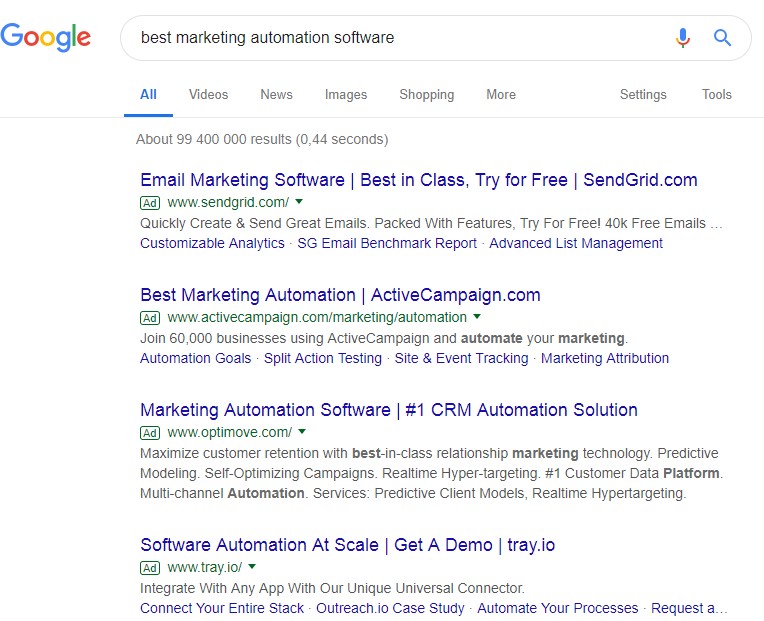
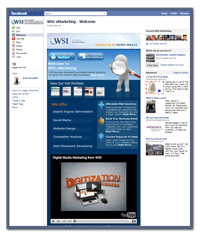

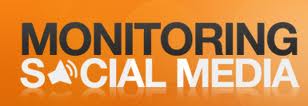
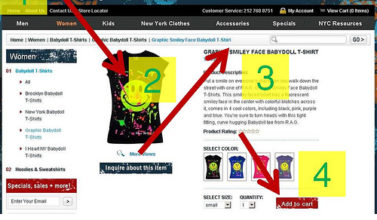
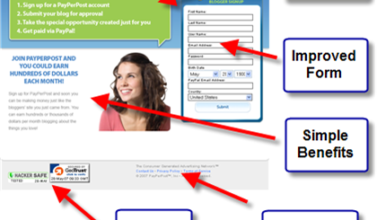
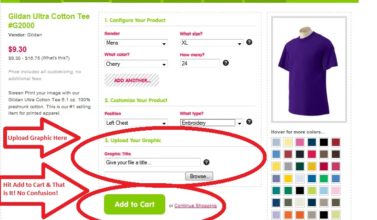
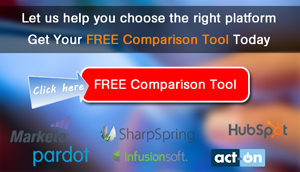



Leave a Comments